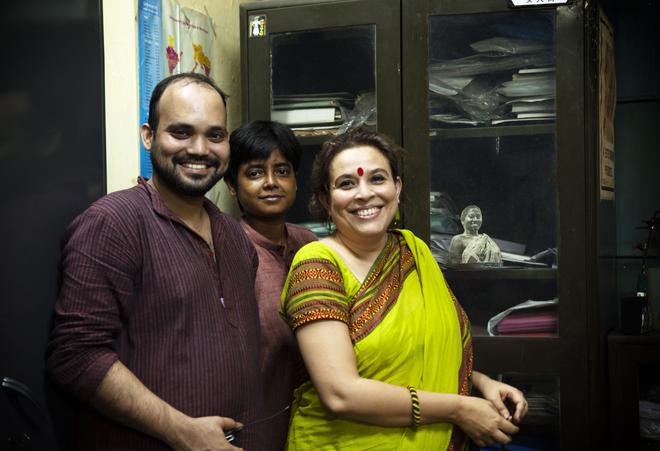A Bengali documentary made in 2019 has, over the past few months, emerged as one of the most salient mouthpieces of the queer community in India after its screening was cancelled at the Ravenshaw Film Festival in Cuttack in March following the recent hearing on same-sex marriage in the Supreme Court.
In the past four months, Gay India Matrimony, directed by Kolkata filmmaker Debalina Majumder, has been shown in some 50 reputed institutions across the country, with the latest screening held at the historic Sanskrit College and University in Kolkata on Wednesday.
It was also shown in Jadavpur University; Presidency University; TISS Mumbai, Hyderabad Central University; Centre for Studies in Social Sciences and Institute for Development Studies (both in Kolkata); and Auroville Film Institute — to name a few.
“The idea [for the documentary] came around 2013, when a judgment against criminalisation of homosexuality was overturned. That was also the time when same-sex marriage was being discussed globally, with several countries legalising it. The purpose was to initiate a debate not just on same-sex marriage, but also the complicated institution of marriage,” Ms. Majumder told The Hindu.

Funded by Films Division
Once the idea was conceived, she said, she sought funding from the Films Division, which agreed to the proposal. “It is a fun movie, without any adult content, but the Censor Board of Film Certification in Kolkata gave it an ‘A’ certificate, saying ‘the film is based on homosexuality and its social recognition and as such is not fit for minor viewing’. As a result of this the Films Division, even though it funded the documentary, kept a distance from it and did not send it to any of the festivals. The COVID-19 pandemic also happened at the same time,” she said.
Finally, early this year, yet another setback led to the film being suddenly recognised countrywide. It was scheduled for screening at the Ravenshaw Film Festival in Cuttack in March when a right-wing outfit forced its cancellation, saying its nuanced arguments for and against same-sex marriage were contradictory to Indian culture. This led to protest screenings in other places, with several reputed institutions beginning to invite Ms. Majumder.
“In fact, it may be the most widely screened film on the same-sex marriage debate in India,” said Professor Samata Biswas of Sanskrit College and University, who held an interactive session with the filmmaker after the screening on Wednesday.
“Gay India Matrimony is a humorous documentary in which three queer people, including the director, set out in search of marriage partners. In their journey they meet community members, academics, marriage registrars, and homophobes to present an excellent analysis of the institution of marriage and the community’s demands for same-sex marriage. It is undoubtedly the film of the present moment,” the professor added.







